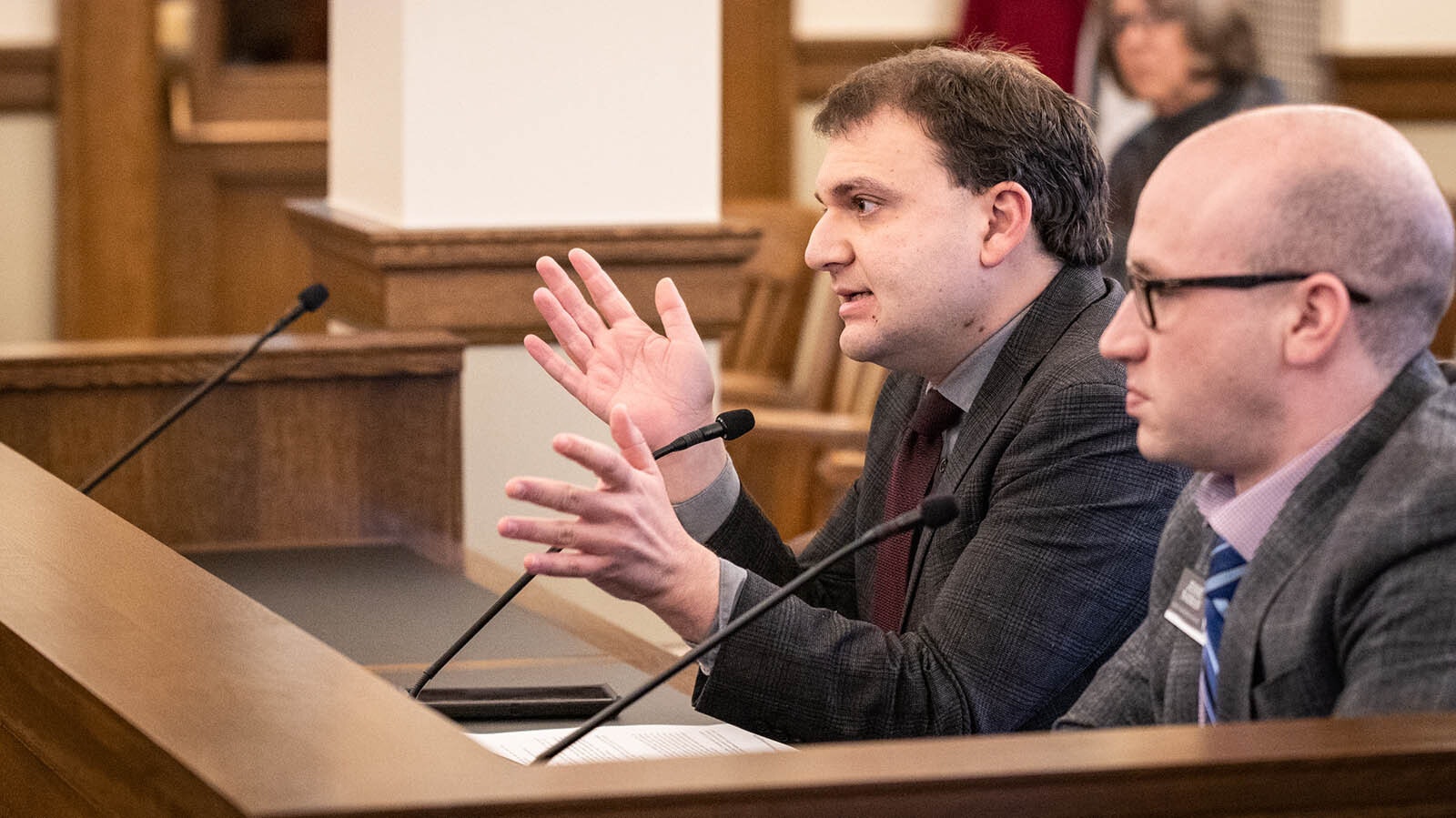Although the lawsuit doesn’t involve Wyoming and won’t have a direct affect on the Cowboy State’s 2024 presidential election, Secretary of State Chuck Gray has filed a brief with the Colorado Supreme Court asking it to overturn a lower court’s determination that former President Donald Trump is an “insurrectionist.”
“The decision of the District Court, if upheld, not only sets a concerning precedent, but also encroaches upon the fundamental rights of voters, a principle deeply embedded in our democratic fabric,” Gray says in his brief.
Earlier this month, a Colorado District Court ruled that Trump should be allowed to have his name on that state’s 2024 Republican primary ballots, rejecting the plaintiff’s claims that because Trump allegedly caused the Jan. 6, 2021, U.S. Capitol attack, he could be barred from reelection under the 14th Amendment. The court ruled that the office of president is not subject to the 14th Amendment.
But Denver District Court Judge Sarah B. Wallace also determined that Trump did participate in an insurrection by “inciting” the Jan. 6, 2021, attack on the Capitol.
Gray said he felt compelled to act in the best interest of Wyoming residents and U.S. citizens.
“The weaponization of the 14th Amendment by the radical left with frivolous lawsuits like the one in Colorado undermines the sanctity of the Constitution and our entire election process,” Gray told Cowboy State Daily.
Right To Choose
Gray and the secretaries of state from Missouri and Ohio assert in the brief the premise of self-governance and an elector's right to choose a candidate of their liking without judicial interference within the national electoral landscape.
“The removal of a candidate from the ballot in one state not only affects that state’s election, but also has far-reaching ramifications in other states, including Wyoming,” he said. “Preventing an eligible candidate in one state from being able to attain electoral votes affects every other state.”
The brief also says that banning a candidate from a ballot in one state not only affects that state’s election, but also “artificially alters” a candidate’s momentum and can have far-reaching ramifications in other states with later primaries and caucuses like Wyoming.
“These frivolous, radical left lawsuits are happening across the country, and it is imperative that voters in one state not be affected by judgments in other states, like Colorado,” Gray said.
Grounds To Prevent
The brief argues that by letting the district court’s determination of Trump inciting an insurrection stand, it could allow other courts to potentially view that ruling as legal precedent to prevent Trump and other states from relitigating the issue and fight other efforts to keep him off ballots.
“The ultimate end of which would undermine the integrity of other states’ elections by artificially limiting ballot access, thus effectively depriving voters in other states from making their own decision in the 2024 presidential election,” the brief says.
Last week, Trump’s legal team and a group of six voters represented by the watchdog group Citizens for Responsibility and Ethics in Washington appealed to the Colorado Supreme Court over the lower court’s decision.
The Colorado decision can only directly impact what happens to the ballots in that state. But it theoretically could factor into a similar lawsuit filed in Wyoming since the ruling adds to a growing volume of rejected challenges to balloting Trump nationwide, which have been filed in more than half of U.S. states at this point.
Gray said his office is also preparing a motion to dismiss in the “outrageously wrong” Wyoming case.
Jan. 6 Committee Was Biased
The secretaries also argue that the court should have granted Trump’s motion to dismiss the case and rejected the plaintiff’s claims for relief because the court found the office of president is not subject to the 14th Amendment.
“Therefore, the question at trial regarding President Trump’s actions on Jan. 6, 2021, had no bearing on whether Petitioners were entitled to relief,” the brief argues.
In her ruling, Wallace cited the findings of former Wyoming’s congresswoman Liz Cheney’s U.S. House Select Committee on the January 6 Attack, which determined that Trump caused the breach of the Capitol. It was the first time a presidential candidate had been found to have engaged in an insurrection by a court.
Trump’s attorney argued in Denver that the findings of the Select Committee were biased because Cheney and her eight colleagues held a “deep personal animus” toward the former president.
Gray’s brief states that the bias of this committee “has become increasingly clear as more security camera footage of Jan. 6 continues to be released to the general public.”
It also criticizes Wallace for relying on the testimony of sociologist Peter Simi, who determined that Trump’s denunciation of neo-Nazis and white supremacists “would be understood as plausible deniability” of his alleged support of these groups.
“Resting the final judgment on biased evidence so far disconnected from logic and reality not only prejudices the parties to the case, and cases in other states, but ultimately risks prejudicing the integrity of the electoral process of the entire country through ultimately denying voters in other states the right to choose a presidential candidate for themselves,” the brief says.
Leo Wolfson can be reached at leo@cowboystatedaily.com.





